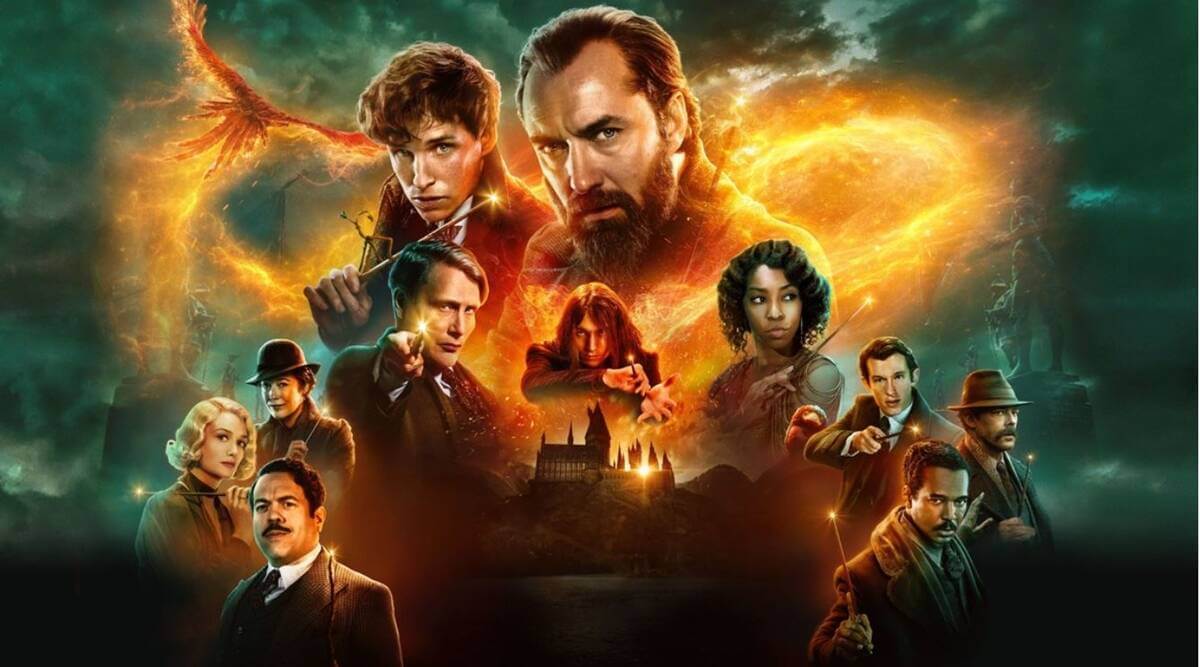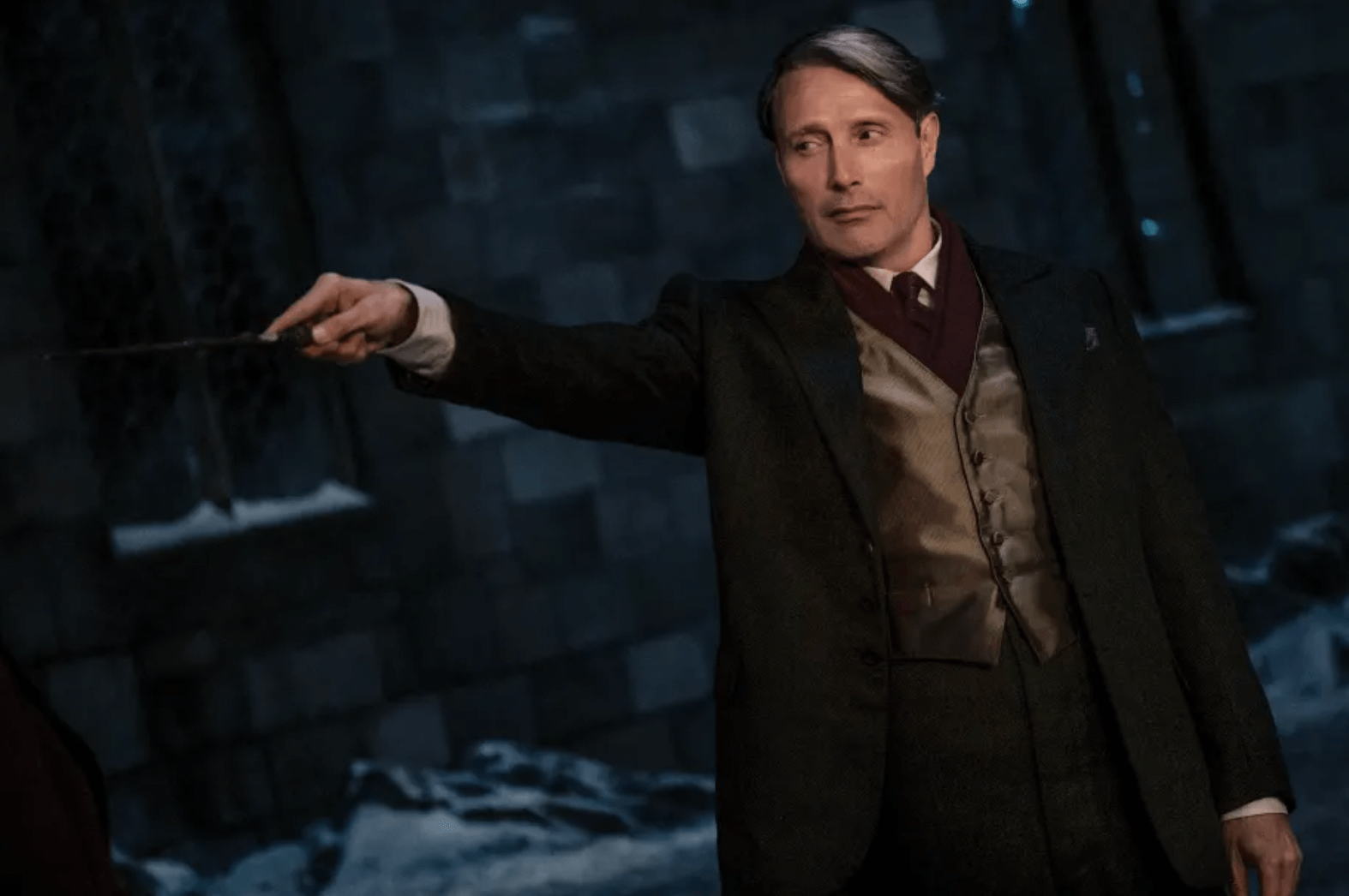How is the new ‘Fantastic Beasts’ movie all about Nazis yet also antisemitic?
Grindelwald is basically Hitler, yet all the Jews are bad guys? Somehow, this is the least of the movie’s problems.

The poster is as confusing as the movie. Image by Warner Bros
The “Fantastic Beasts” franchise was supposed to be about two things: the eponymous beasts and the defeat of Gellert Grindelwald, a thinly-veiled wizard Hitler. Yet “The Secrets of Dumbledore,” the third installment in what is supposed to be a five-movie series, has little to do with either.
Beyond showing off splashy CGI thunderbirds and phoenixes, the “Fantastic Beasts” franchise set out to fill in the wizarding history of Dumbledore’s rivalry with his ex-lover Grindelwald over the latter’s pure-blood ideology. The storyline, which had already been outlined in the original series, has very obvious parallels to the rise of Hitler — parallels made bruisingly explicit by Rowling’s choice to name Grindelwald’s stronghold “Nurmengard” and embellish it with an Auschwitz-esque sign over the entrance reading “For the Greater Good.”
Just to remind you that this is a movie about Nazis, the latest installment is set in 1930s Berlin during a contested election that Grindelwald (Mads Mikkelson replacing Johnny Depp in the role) is using to seize power; our motley crew of unlikely heroes attempts to infiltrate the corrupt government to prevent his ascension. (We get it! He’s Hitler!) The original Harry Potter series had such sweeping moral messaging that its devotees now sometimes read the books as a religious text and “Fantastic Beasts” is gunning for the same following.
The first “Fantastic Beasts” movie, written by Rowling, was an enjoyable romp, capitalizing on what made the Harry Potter movies fun: magic. Starring magical creatures expert Newt Scamander (Eddie Redmayne) and set in New York City on the Lower East Side, it was light on plot and heavy on whimsy. It spent its time fleshing out the American wizarding world and showcasing the various imaginative animals Rowling dreamed up for Scamander to house inside his magically enlarged briefcase. Newt is on the side of freedom for all creatures, Grindelwald on the side of fascism and control — clean and simple, if a bit hollow.
But in the third installment — for which Rowling was joined by screenwriter Steve Kloves, who worked on the original Harry Potter movies — the franchise has gone dark and self-serious, yet so unintelligible that any moral messaging has gone out the window. The only things that are clear is that Grindelwald is the bad guy and that he’s a Hitler analogue. But exactly what he believes or what he’s trying to do — the substance of his evil — is left unsaid; he’s a cardboard cut-out of a villain, lacking in any real malice. It’s impressive, honestly, to make an obvious Hitler figure so toothless.
Defanging Grindelwald isn’t the only thing that muddles the movie’s messaging. In the confusion, somehow the only Jewish characters in the franchise have ended up on the dark side. Of the two Jewish main characters from the first movie, New York witches Tina and Queenie Goldstein, Tina has been almost entirely written out and Queenie has gone over to the dark side. And the corrupt leader of the international wizarding world, an ineffective man who eases Grindelwald’s path to election, is named Vogel and his assistant is identified as Ms. Fischer — both commonly Jewish surnames.

Admittedly, in the universe of the film, Grindelwald’s bigotry is not against Jews — he was after Muggles and non-pureblood wizards. (It’s all a metaphor, remember?) But it still feels off that in a parable of Hitler’s rise, the only Jewish-coded characters are on the oppressor’s side; it seems like the movie could have at least tried not to reinforce negative stereotypes about Jews as disloyal. As a gesture of good faith, you know.
This is not the first time Rowling has done poorly by the Jewish community. Her writing has always been rich in mixed metaphors — while her villains’ desire for a pureblood wizarding world was unambiguously condemned in the books, she also created a hook-nosed race of goblin bankers. So perhaps it shouldn’t be surprising that, even in a film about the evils of Nazism, the Jewish characters are treacherous and it’s a polite British man who saves the day.
Honestly, though, I’m not sure I’d read into it too much in this case. Never mind finessing the historical parallels; the movie makes no sense at a basic level. Plot holes abound: An unbreakable vow presented at the beginning of the movie is broken by the end with little fanfare or explanation . The titular secrets of Dumbledore are quickly dispatched. The last chunk of the movie is, for no apparent reason, set in an exoticized Bhutan filled with shadowy robed priests. The franchise’s entire raison d’etre — fantastic beasts, in case you had, understandably, forgotten — has been reduced to a brief scene with some flesh-eating scorpions and a thinly-imagined deerlike creature. (The latter can supposedly identify the purest of heart yet ultimately picks a politician — another obvious plot hole.)
Even before the movie’s release, the franchise had already lost its moral authority. Domestic violence accusations caused a last minute casting change, switching the main villain Gellert Grindelwald from Johnny Depp to Mads Mikkelsen. Ezra Miller, who also stars, has been accused of multiple assaults. And J.K. Rowling has alienated a large swath of her fanbase by doggedly posting anti-trans takes on Twitter.
From the movie’s poor showing at the box office, it seems the audience has already rejected Rowling and the wizarding world’s moral sway. Or maybe it’s not that deep — maybe no one is going because the movie is really, really bad.
















